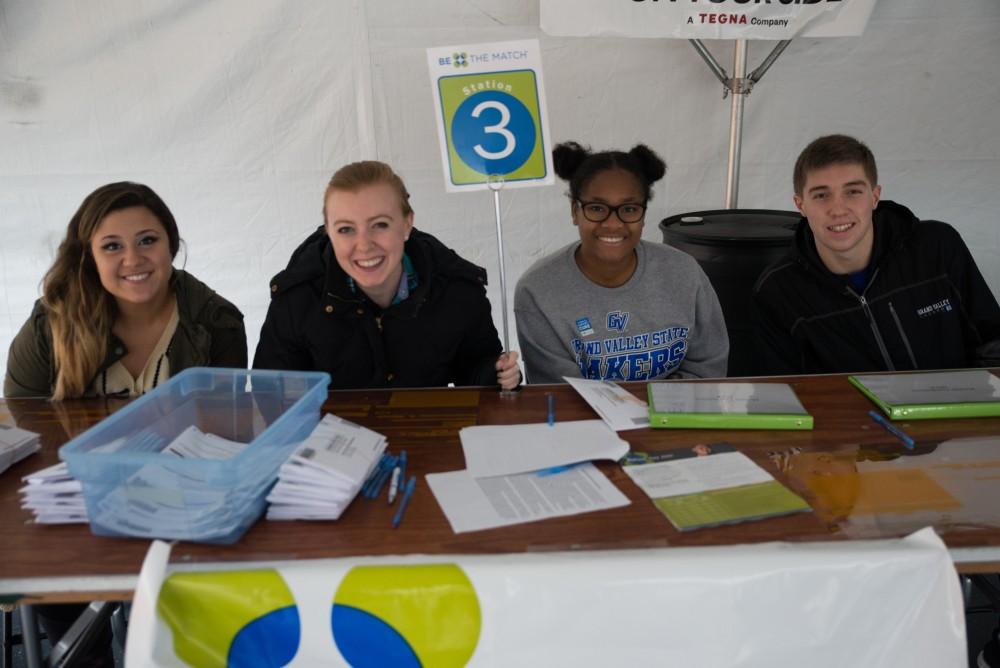Be the magic, be the match.

GVL/Luke Holmes
Oct 26, 2015
Almost 300 people at Grand Valley State University registered to potentially save a life during homecoming last week. The Office of Student Life and Michigan Blood partnered to provide bone marrow information through tables in the Kirkhof Center.
LeaAnn Tibbe, associate director of student life, said the main goal of the events was to celebrate.
“We wanted to celebrate Grand Valley and homecoming, and also have that educational component and get students to give back during homecoming,” Tibbe said.
Students who stopped by the information tables not only learned about the transplants, but also earned points for their team. Tibbe said about 200 added their names to the registry during those two days.
“You have to understand what it means if you were a match,” Tibbe said. “The better educated students can be, the more effective they’ll be in our society. If it can save someone’s life, isn’t that a great opportunity?”
The quest for more potential donors continued during Saturday’s Be The Match registration drive, which Michigan Blood and WZZM 13 sponsored on campus. This event occurred as part of the national Make a Difference Day.
Caitlin Regan, Michigan Blood community engagement representative, said college students are the main demographic, with donors between 18 and 25 years of age getting called the most.
“Younger donors have higher cell counts that lead to more successful transplants for the patients,” Regan said. “That’s why it’s so important to educate and recruit college-aged students—they have the most potential to possibly save someone’s life through their donation.”
About 75 people registered at the Michigan Blood tent on Saturday, but Regan said it is not just about quantity.
“The goals for this week are to add quality donors to the registry who are passionate about our mission,” she said. “Too many times we focus on quantity and adding the most donors we can and don’t focus enough on making sure we add those committed donors. The last thing we want is for someone to join for the wrong reasons and get a call saying they matched a patient in need and then they back out.”
Regan emphasized the need for education. She said something many people do not realize is that the procedure is not a painful surgery. Instead, it is a similar process to donating plasma or platelets. Additionally, if the treatment is successful, a patient will be completely cured of their blood cancer.
She encouraged student groups, such as sororities and fraternities, to get involved by hosting a Be The Match registration event on campus.
For more information, contact Michigan Blood at [email protected], or visit www.miblood.org/be-the-match-registry. To join the bone marrow registry, go to www.join.bethematch.org/MichiganBlood.





















